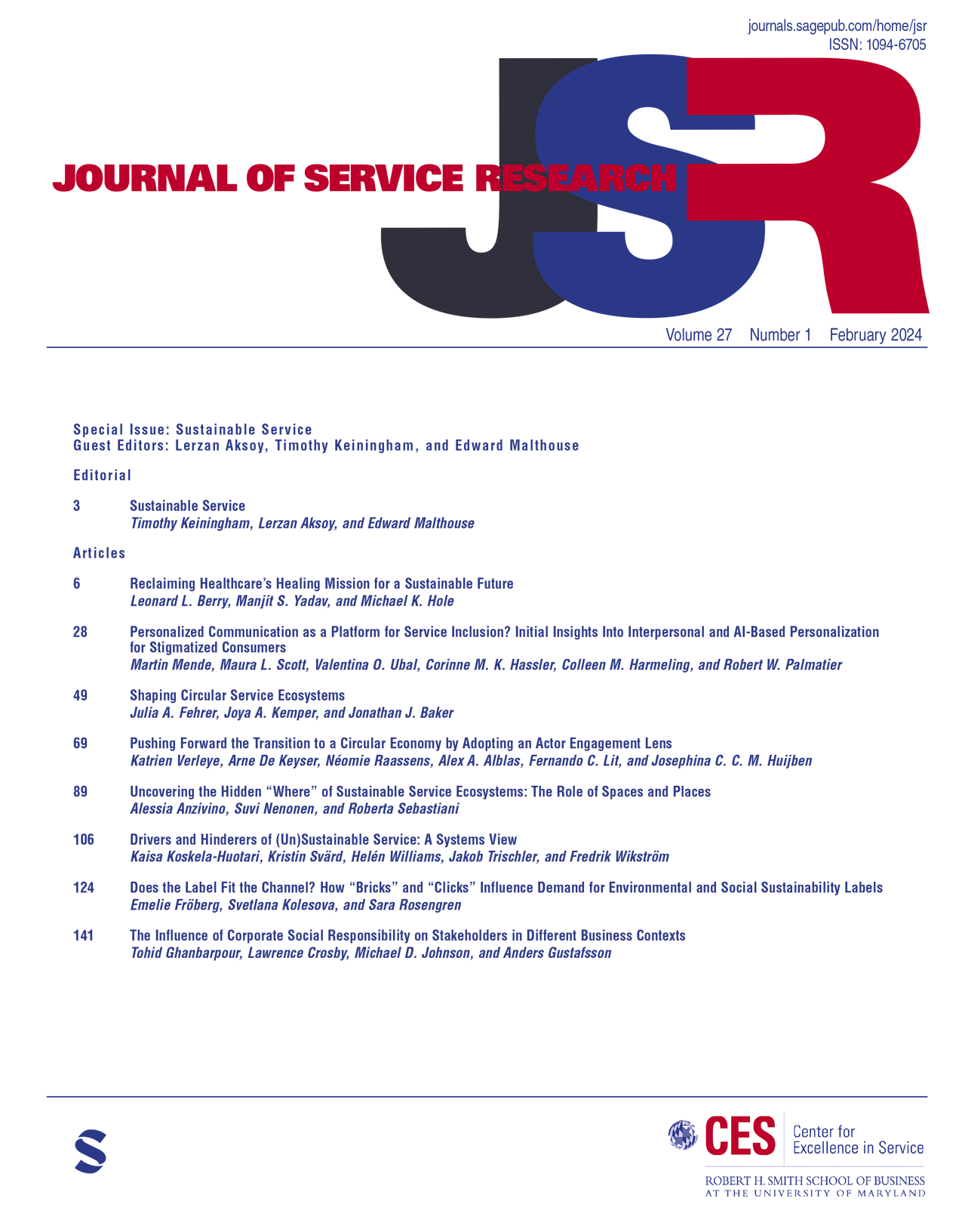顾客不当对待溢出效应的滞后经验抽样方法研究
IF 8.6
2区 管理学
Q1 BUSINESS
引用次数: 0
摘要
顾客不当对待作为服务业中一种规范的、普遍存在的滋扰行为,因其对一线员工滞后反应的深刻影响而受到广泛关注。根据资源保护理论,我们的多层次路径分析结果显示,日常遭遇客户虐待的员工夜间睡眠质量较差,这反过来又驱使他们远离第二天以客户为导向的亲社会行为。这些预测进一步取决于服务规则承诺的水平,服务规则承诺被定义为客户对组织服务规则的承诺。在研究2和研究3中,我们复制了研究1的研究结果,并扩大了结果的范围,将员工的离职意愿作为前一天客户不当对待引发的另一个后果。此外,我们将最优规则控制和共情领导纳入我们的分析,提出三方互动。结果表明,当规则控制达到最优或共情领导水平较高时,高服务规则承诺对顾客虐待与夜间睡眠质量关系的恶化效应得到缓冲。综上所述,我们的研究结果揭示了日常客户虐待的溢出损耗效应,以及这种过程的强度如何受到个人和情境因素的约束。本文章由计算机程序翻译,如有差异,请以英文原文为准。
A Lagged Experience Sampling Methodology Study on Spillover Effects of Customer Mistreatment
As a normative and ubiquitous nuisance in the service industry, customer mistreatment has received extensive attention for its profound impacts on front-line employees’ (FLEs) lagged reactions. Drawing upon the Conservation of Resources theory, our results of multilevel path analysis reveal that FLEs encountering daily customer mistreatment experience poor nightly sleep quality, which in turn drives them away from next-day customer-oriented prosocial behavior. These predictions are further contingent upon the levels of service rule commitment, defined as FLEs’ commitment to organizational service rules. In Study 2 and Study 3, we replicate the findings of Study 1 and expand the range of outcomes to cast FLEs’ turnover intention as another consequence triggered by customer mistreatment on the previous day. Furthermore, we incorporate optimal rule control and empathetic leadership into our analyses to propose the three-way interactions. The results unpack that the aggravating effect of high service rule commitment on the relationship between customer mistreatment and nightly sleep quality is buffered when rule control is optimal or when empathetic leadership is high. Taken together, our findings uncover the spillover-depleting effects of daily customer mistreatment and how the strength of such process is bound by personal and contextual factors.
求助全文
通过发布文献求助,成功后即可免费获取论文全文。
去求助
来源期刊

Journal of Service Research
BUSINESS-
CiteScore
20.30
自引率
6.50%
发文量
28
期刊介绍:
The Journal of Service Research (JSR) is recognized as the foremost service research journal globally. It is an indispensable resource for staying updated on the latest advancements in service research. With its accessible and applicable approach, JSR equips readers with the essential knowledge and strategies needed to navigate an increasingly service-oriented economy. Brimming with contributions from esteemed service professionals and scholars, JSR presents a wealth of articles that offer invaluable insights from academia and industry alike.
 求助内容:
求助内容: 应助结果提醒方式:
应助结果提醒方式:


